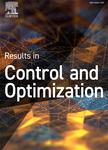版权所有:内蒙古大学图书馆 技术提供:维普资讯• 智图
内蒙古自治区呼和浩特市赛罕区大学西街235号 邮编: 010021

作者机构:Presidency Univ Presidency Sch Comp Sci & Engn Bengaluru Karnataka India
出 版 物:《RESULTS IN CONTROL AND OPTIMIZATION》 (Result. Control. Optim.)
年 卷 期:2025年第18卷
主 题:Cloud computing Mobile cloud computing Task offloading Task sequencing Federated learning with blockchain technology (FLBCT) Optimization task scheduling computational offloading (OTSCO) and microservices
摘 要:Smartphones and other mobile device users are becoming increasingly susceptible to malicious applications or apps that compromise user privacy. Malicious applications are more invasive than required because they require less authorization to operate them. The Android platform is more vulnerable to attacks since it is open-source, allows third-party app stores and it has extensive app screening. Thus the usage of mobile cloud applications has also expanded due to android platform. The mobile apps are useful for e-transportation, augmented reality, 2D and 3D games, ehealth care and education. Consequently, maintaining MCC security and optimization of resources according to the task becomes significant task. Though recent research has been focused in the area of task scheduling, supporting multiple objectives still becomes a significant issue due to the Non-deterministic Polynomial (NP) hard problem. In this paper, Federated Learning with Blockchain Technology (FLBCT) is introduced for Microservice-based Mobile Cloud Computing Applications (MSCMCC). Mobile app permissions dataset has to be offloaded to a mobile cloud and protected using FL and BCT. FL permit mobile users to train models without sending raw data to third-party servers. FL is also used to trains the data across various decentralized devices holding of samples without exchanging them. BCT is introduced for enhancing data traceability, trust, security and transparency among participating companies. Resource matching, task sequencing, and task scheduling are major steps of Optimization Task Scheduling based Computational Offloading (OTSCO) framework. OTSCO framework increases application efficiency and gives the successful resource constraints to increase application-based efficiency, tasks are executed under deadline, and minimize application cost. The proposed system has a lower overhead of 20.14%, lesser boot time of 20.47 ms, lesser CPU usage of 0.45%, failure task ratio of the suggested system is 2.52%